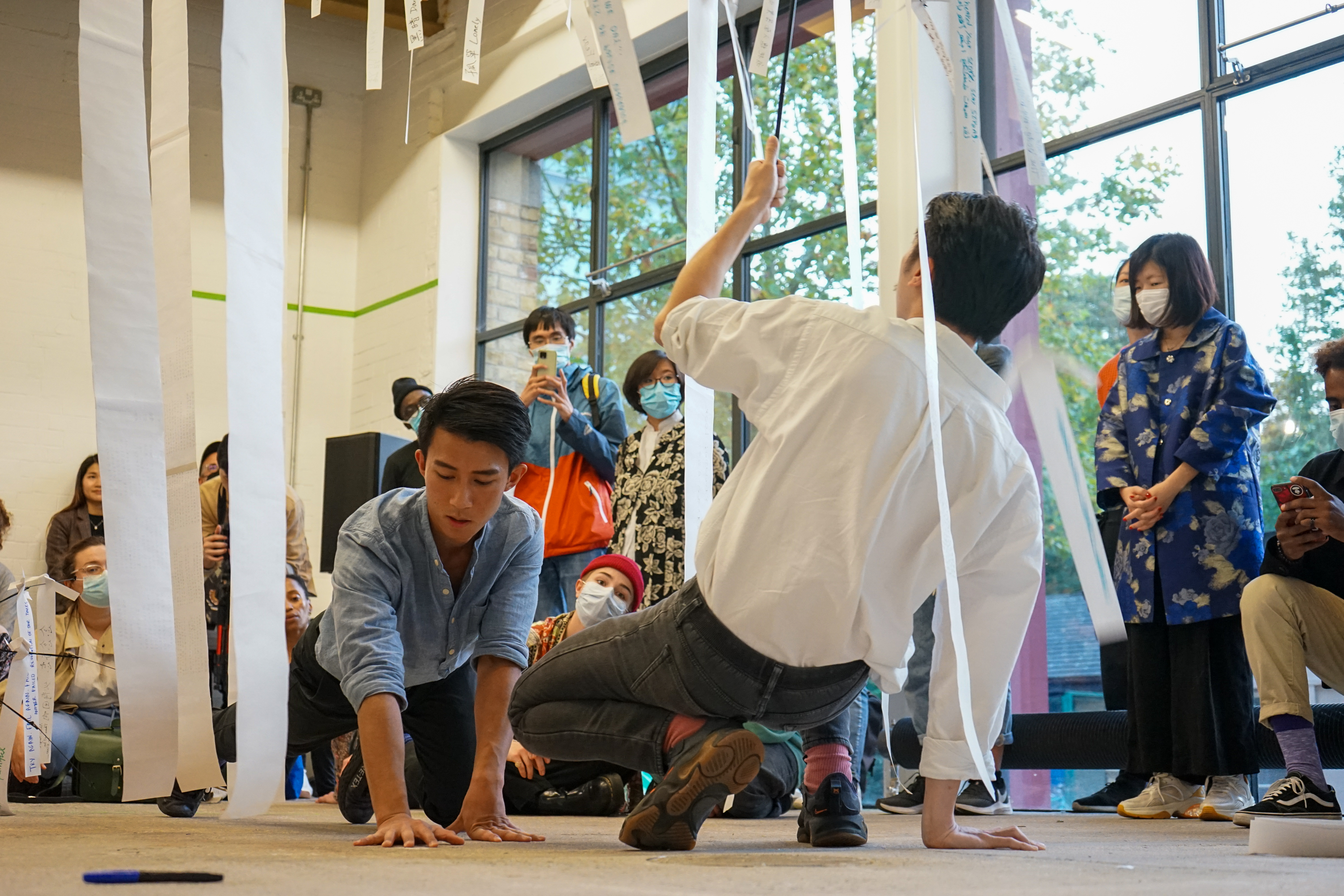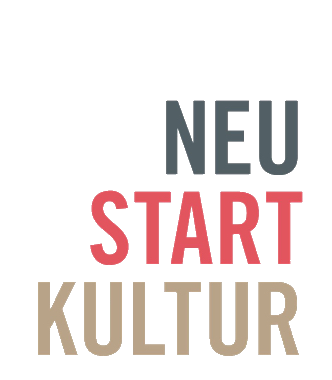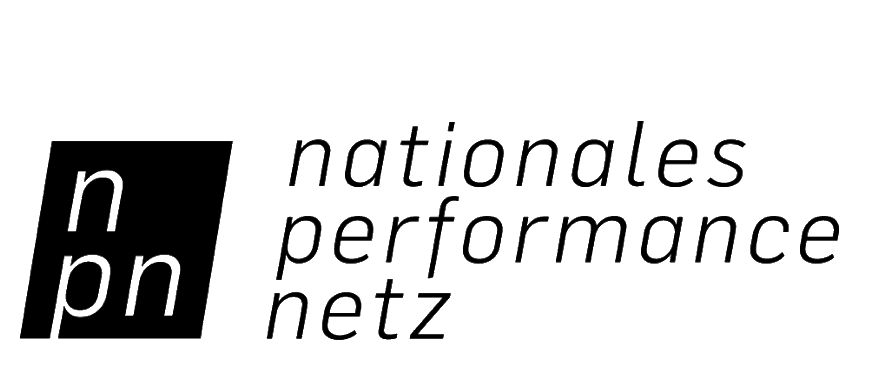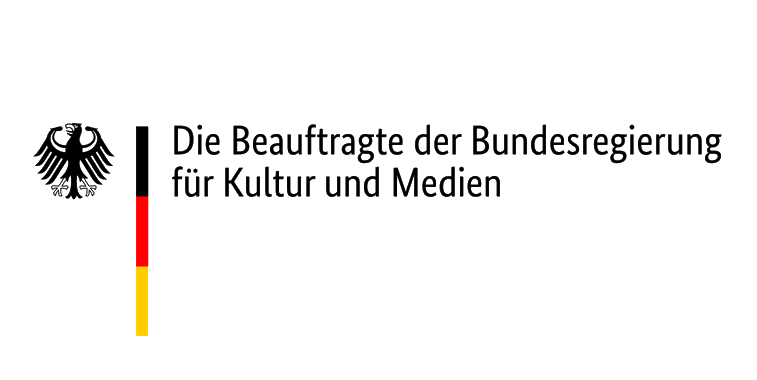From Mass Movement to Art Processes: Telling the lived experiences of struggles in public arenas
John Chan
A look into how personal experiences within mass movements during social activisms across the globe contribute to inter-disciplinary artistic processes. John Chan examines how this concept may be used as a strategy to foster intercultural solidarity through the making of art.
“From Mass Movement to Art Processes: Telling the lived experiences of struggles in public arenas” is a project built on Chans MA thesis, “The Space Between: An Investigation into the reception and societal efficacy of art at times of social crisis”. This project explores the writings of Stuart Hall (1980) and Randy Martin (1998) regarding the reception of art with an emphasis on audience participation in the made works. With additional references to Douglas Crimp’s (1987) and Susan Leigh Foster’s (2003) writings on cultural activism, John studies the social efficacy of these works originating from the historical context and the interweaving of past and present through the action of the performing and spectating bodies.
Johns’ research is greatly motivated by his personal activist and migrant identity as a queer person of East Asian heritage. He is interested in drawing new ways for us to collectivise, not only questioning how society progresses, but also acknowledging who is left behind. He sees a necessity to imagine new possibilities to prepare us for our common future, observing which structures and infrastructure we might need for everyone to play on an even field. He questions how Grassroots Organisations, corporates and governments can join hands in building these structures. Through his work, John aims to activate public places with decolonised gestures to open up safe and brave spaces for everyone's voices to be heard, especially those from marginalised communities.This research, hence, takes multiple perspectives and approaches in understanding how performances, art events, and dance spaces, can be places where people’s lived experiences and struggles are heard and known. The project will take shape in the form of workshops, conversations, readings, reviewings and more.
One of the key processes to which John Chan will devote his time is a focused investigation into the employment of tear gas in cival environments. Through studying the legacy of the British Empire in contemporary society he shall evaluate the use of tear gas in military environments and civil spaces. Whilst visiting archives such as National Archive and Wellcome Collection in London, John will take a look at documents relevant to the colonial history of the country, from government memorandums to newspaper clippings. His process and findings will be presented in form of creative productions that aim at surfacing global post-colonial trauma. John sets out to to devise tools to construct an immersive public event that reveals how tear gas has become a materialised symbol of imperialism/ colonialism legacy. The universality of tear gas is of key significance in the potentiality of cross-cultural conversation through in-depth investigation. Through intimate conversations with political performance artists from different cultural backgrounds, he is able to gain a new understanding of how their personal participation in protests contribute to their current art making methodologies. Holding safe and brave spaces for fellow art makers to boldly experiment and explore new means of presentation inspired by their personal experiences, is paramount in Johns work.
Simultaneously, he shall assess previous personal productions while continuing to create archives of the workflow within his socially-pertinent works. As a result he wishes to devise strategies to generate collectivity through the common physical and psychological understanding of being part of a mass movement. Social injustice, including political suppression, racism and homophobia; and fragmented memories of traumatic experiences related to the displacement of home, relationships, activism and technological interactions are critical recurring themes in the work of migrant and queer artists. John’s work both current and prior, are profound examples.
Bio: John Chan is a multidisciplinary storyteller, creative strategist and social entrepreneur working at the intersection of arts, cultural change and social justice, from a marine biology research background. He focuses on creating dignified spaces for everyone's presence and amplifying historically marginalised voices. He mainly collaborates with Ghost Chan as Ghost and John. He is the lead strategist of Hidden Keileon CIC.
As a queer migrant from Hong Kong, John’s works focus on the intricacies of the body and nature, social movement and the folklore accompanying history. As a creative strategist, John has been involved in multiple social imagination projects and building infrastructures for resilient futures through exploring embodied ecology, stewardship and abolitionist organising.
John is a versatile maker across theatres, films, galleries and odd spaces. Productions he contributed his skills as director, writer, performer, and designer have been seen internationally. He is an actor represented by Hancock Agency. John was first trained as a biologist (BSc Biological Science, HKUST) and has received an MA (Distinction) Contemporary Dance, The Place. He was an ImPulsTanz ATLAS Young Choreographer (2019) and was trained under Siu Wan from SHOW DANCE in Hong Kong.
www.ghostandjohn.art
www.hiddenkeileon.art
“From Mass Movement to Art Processes: Telling the lived experiences of struggles in public arenas” is a project built on Chans MA thesis, “The Space Between: An Investigation into the reception and societal efficacy of art at times of social crisis”. This project explores the writings of Stuart Hall (1980) and Randy Martin (1998) regarding the reception of art with an emphasis on audience participation in the made works. With additional references to Douglas Crimp’s (1987) and Susan Leigh Foster’s (2003) writings on cultural activism, John studies the social efficacy of these works originating from the historical context and the interweaving of past and present through the action of the performing and spectating bodies.
Johns’ research is greatly motivated by his personal activist and migrant identity as a queer person of East Asian heritage. He is interested in drawing new ways for us to collectivise, not only questioning how society progresses, but also acknowledging who is left behind. He sees a necessity to imagine new possibilities to prepare us for our common future, observing which structures and infrastructure we might need for everyone to play on an even field. He questions how Grassroots Organisations, corporates and governments can join hands in building these structures. Through his work, John aims to activate public places with decolonised gestures to open up safe and brave spaces for everyone's voices to be heard, especially those from marginalised communities.This research, hence, takes multiple perspectives and approaches in understanding how performances, art events, and dance spaces, can be places where people’s lived experiences and struggles are heard and known. The project will take shape in the form of workshops, conversations, readings, reviewings and more.
One of the key processes to which John Chan will devote his time is a focused investigation into the employment of tear gas in cival environments. Through studying the legacy of the British Empire in contemporary society he shall evaluate the use of tear gas in military environments and civil spaces. Whilst visiting archives such as National Archive and Wellcome Collection in London, John will take a look at documents relevant to the colonial history of the country, from government memorandums to newspaper clippings. His process and findings will be presented in form of creative productions that aim at surfacing global post-colonial trauma. John sets out to to devise tools to construct an immersive public event that reveals how tear gas has become a materialised symbol of imperialism/ colonialism legacy. The universality of tear gas is of key significance in the potentiality of cross-cultural conversation through in-depth investigation. Through intimate conversations with political performance artists from different cultural backgrounds, he is able to gain a new understanding of how their personal participation in protests contribute to their current art making methodologies. Holding safe and brave spaces for fellow art makers to boldly experiment and explore new means of presentation inspired by their personal experiences, is paramount in Johns work.
Simultaneously, he shall assess previous personal productions while continuing to create archives of the workflow within his socially-pertinent works. As a result he wishes to devise strategies to generate collectivity through the common physical and psychological understanding of being part of a mass movement. Social injustice, including political suppression, racism and homophobia; and fragmented memories of traumatic experiences related to the displacement of home, relationships, activism and technological interactions are critical recurring themes in the work of migrant and queer artists. John’s work both current and prior, are profound examples.
Bio: John Chan is a multidisciplinary storyteller, creative strategist and social entrepreneur working at the intersection of arts, cultural change and social justice, from a marine biology research background. He focuses on creating dignified spaces for everyone's presence and amplifying historically marginalised voices. He mainly collaborates with Ghost Chan as Ghost and John. He is the lead strategist of Hidden Keileon CIC.
As a queer migrant from Hong Kong, John’s works focus on the intricacies of the body and nature, social movement and the folklore accompanying history. As a creative strategist, John has been involved in multiple social imagination projects and building infrastructures for resilient futures through exploring embodied ecology, stewardship and abolitionist organising.
John is a versatile maker across theatres, films, galleries and odd spaces. Productions he contributed his skills as director, writer, performer, and designer have been seen internationally. He is an actor represented by Hancock Agency. John was first trained as a biologist (BSc Biological Science, HKUST) and has received an MA (Distinction) Contemporary Dance, The Place. He was an ImPulsTanz ATLAS Young Choreographer (2019) and was trained under Siu Wan from SHOW DANCE in Hong Kong.
www.ghostandjohn.art
www.hiddenkeileon.art
 "Thousand Papers" at CCA Goldsmiths, photo by Jeffrey Choy
"Thousand Papers" at CCA Goldsmiths, photo by Jeffrey Choy "Meniscus" at The Place London, photo by Dominic Farlam
"Meniscus" at The Place London, photo by Dominic FarlamMoving Margins Chapter II
moving arti|facts from the margins of dance archives
into accessible scores and formats



Supported by the NATIONAL PERFORMANCE NETWORK
- STEPPING OUT, funded by the Federal Government
Commissioner for Culture and Media within the
framework of the initiative NEUSTART KULTUR.
Assistance Program for Dance.
artistic researches
Supported by the NATIONAL PERFORMANCE NETWORK
- STEPPING OUT, funded by the Federal Government
Commissioner for Culture and Media within the
framework of the initiative NEUSTART KULTUR.
Assistance Program for Dance.
© 2021 All rights reserved to Sasha Portyannikova, Nitsan Margaliot and the interviewees.

